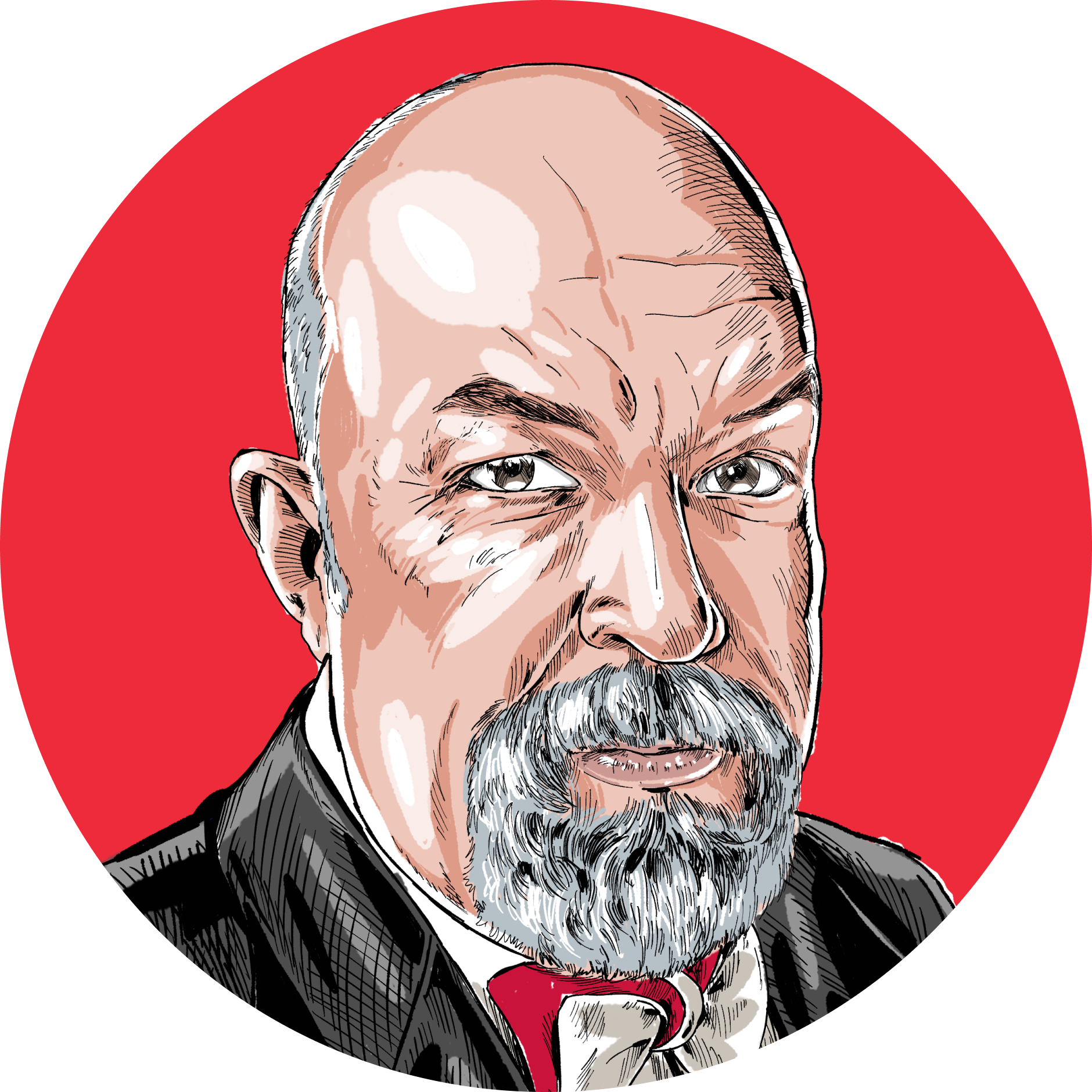Were our Founding Fathers liberators or traitors? The Declaration of Independence set out the case for the revolution prospectively, for the benefit of that “decent respect to the opinions of mankind.” Yet the American Revolution was always going to be judged retrospectively: In order to justify the rebellion against kingdom and king, the new republic would have to be more virtuous than the kingdom and more magnificent than the king.
In theory—a theory that to a surprising extent held true for a generation or two—the receptacle for American virtue was the whole body of the people, the citizens who managed to keep the republic together without civil war (for almost a century), who flourished mightily, and who practiced the cardinal republican virtues (even as the moral blight of slavery grew impossible to tolerate). The American people really did set an example to the world. There being no king, and so the receptacle for American magnificence became, tragically if inevitably, the president: first in the person of George Washington, and then in the institution of the presidency at large.
We were lucky and unlucky to have George Washington. Washington was the real thing, a genuine hero for the ages whose personal virtue, dignity, and propriety set the tone for the public life of the young nation. Washington would not be a king; Washington would not be an elected tyrant; Washington would not stay in office longer than was seemly. Washington’s magnificence was, in the main, a moral magnificence—there was very little Caesar in him. His contemporaries and immediate political progeny recognized in him a classical type, and he was celebrated as an American Cincinnatus, the virtuous republican who, having been invested with awful power, went home to his plow when his service was done.
Cincinnatus would not have tolerated being made an idol of, but it was practically foreordained that George Washington would be made such an object of veneration. Washington was celebrated in a kind of crypto-classical mode that became increasingly plainly idolatrous as the years went on: the pagan artwork that decorates the interior of the Capitol dome is titled, appropriately, The Apotheosis of Washington. (The artist was formerly employed by the Vatican.) Likewise, Washington’s successors became recipients of veneration through a process that is a kind of laying on of hands, a sort of apostolic succession. The cult even has relics, such as the “Resolute” desk. The city named for the first of the presidents is bedecked with pagan monuments of every kind, from Greco-Roman temples to the Egyptian obelisk that communicates Washington’s national fatherhood in its most obvious symbolic form. Presidents are lauded with “Hail to the Chief,” a song adapted from Walter Scott’s thoroughly pagan “The Lady of the Lake”:
Hail to the Chief who in triumph advances!
Honor’d and blest be the evergreen pine!
Long may the tree in his banner that glances,
Flourish, the shelter and grace of our line!
Obelisks and mystic evergreen trees: the old pagan fertility-rite stuff you’ll all know from The Golden Bough.
That line of thinking remains ineffably, dopily with us: John Kasich calls the president “America’s dad,” and he is not alone, as you can see from essays titled “Trump Is America’s Father, and Dad Is Sick,” “Why Obama Wants To Be America’s Dad,” etc. You may recall that Milo Yiannopoulos was in the habit of calling Donald Trump “daddy,” about which the less is said the better. Without going into a full-on disquisition on all this, I’ll summarize: The U.S. president functions effectively as a sacralized king; sacralized kings as national fathers and sacralized kings as national agents of economic prosperity meet on the ancient ground of fertility—hence the obelisks. If the sacred king performs the proper rituals, doing what is prescribed and forsaking what is proscribed, then the crops will grow and the cattle will give milk and the women will conceive and deliver healthy children. It is almost the oldest superstition.
The American presidency has grown more ritualistic over the years in ways great and small. In his role as commander in chief (the title is imperator in Latin, producing emperor in English) the president has taken on more martial splendor, giving military salutes as though he were a uniformed officer, in contradiction of traditional etiquette, and increasingly accompanied by military displays of one kind or another. (Donald Trump was in the habit of referring to “my generals,” as though the Army were the staff of one of his tacky hotels.) Washington has gone title-crazy, with people referring in the most ridiculous way to “Leader McConnell” and “Leader Jeffries,” while men and women decades out of office continue to insist on being referred to as “Governor X” or “Ambassador X” or “Mr. Speaker,” or “Secretary X” as though these were lifelong titles of nobility rather than temporary job titles held by certain public servants. (People who refer to current or former surgeons general or attorneys general as “General X” should be disenfranchised and deported as a matter of civic hygiene.) We have built a sad little ersatz nobility without the, you know, nobility. Not that the so-called nobility of Europe or the United Kingdom or the rest of the world are especially noble in any meaningful way.
And so tonight we have the State of the Union address, which is the American version of a “speech from the throne,” and it will be—as it always is—a contemptible, despicable burlesque. It is all genuinely gross: the ceremonial opening, the triumphal entry missing only chariots and captives in chains, the toadies lined up to touch the hem of the garment of the divine person as he passes, the special dispensations, the veneration of the Skutniks. The divine king, now smiling, now glowering, promising deliverance and plenty; the courtiers in their rivals factions: See who is applauding! Look who isn’t! A little bit of prophecy, a little bit of ritual oath-binding.
And, then, nothing.
If you have been keeping score for the last 233 years or so, the bold proposals and lofty rhetoric of State of the Union (I suppose this must be capitalized!) speeches typically add up to approximately squat. Big words, big feelings, big show—big nothing.
There was a brief, glorious period when the State of the Union report was delivered by the president to the Congress in the form of a letter. Of course, there has been some progress since the 18th century: An email would do.
It was a dicey business at the time for George Washington and company. I wonder about the American Founders: Had they been able to foresee such a figure as Joe Biden strutting and preening in a way that George III wouldn’t have dared, that Napoleon in his time would have blushed at, that Julius Caesar in his time would have scorned, that the hypothetical love child of P. T. Barnum and Liberace would have pronounced just a bit much—would they have thought it worth it to freeze at Valley Forge, to bleed at Concord, or to lose, in many cases, those lives and their fortunes they pledged, if not their sacred honor?
And is this what they had in mind by “sacred honor” at all?









Please note that we at The Dispatch hold ourselves, our work, and our commenters to a higher standard than other places on the internet. We welcome comments that foster genuine debate or discussion—including comments critical of us or our work—but responses that include ad hominem attacks on fellow Dispatch members or are intended to stoke fear and anger may be moderated.